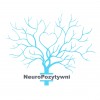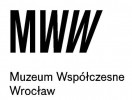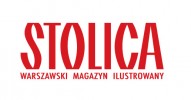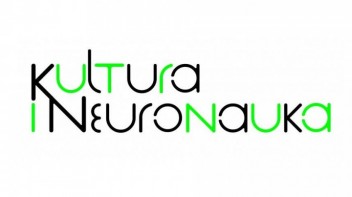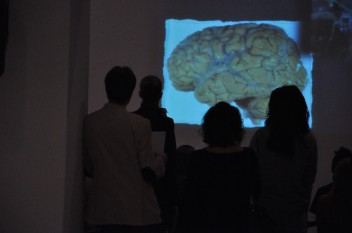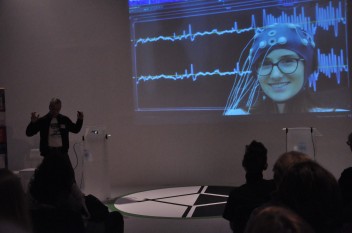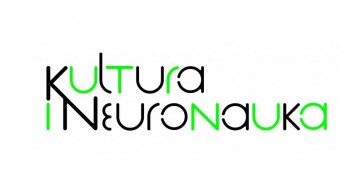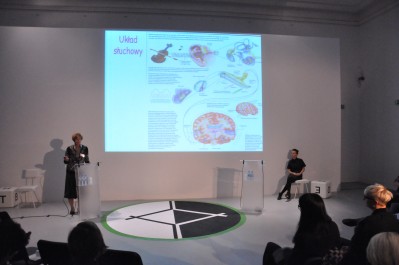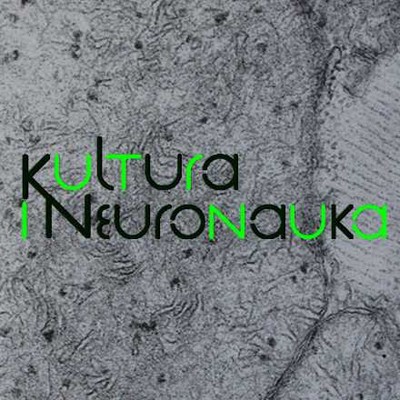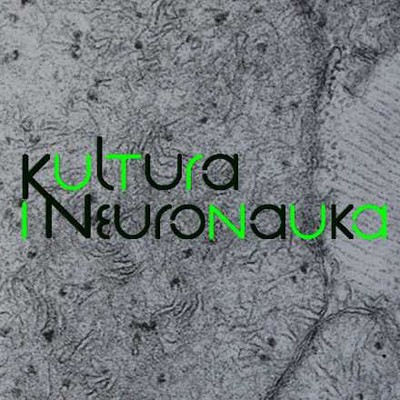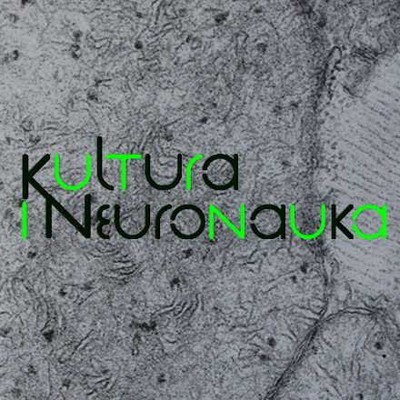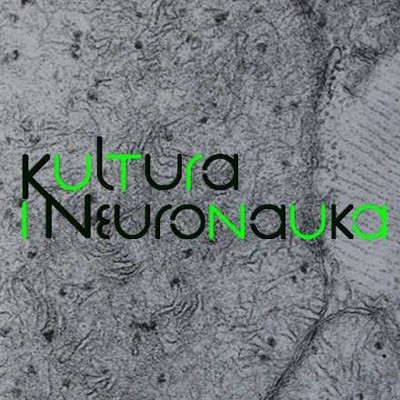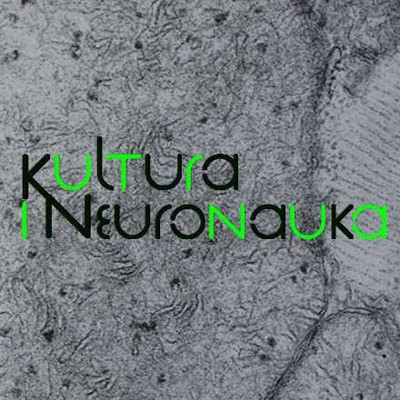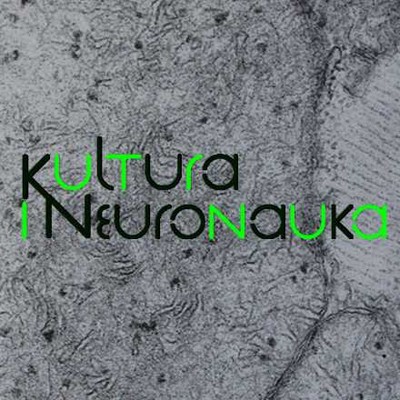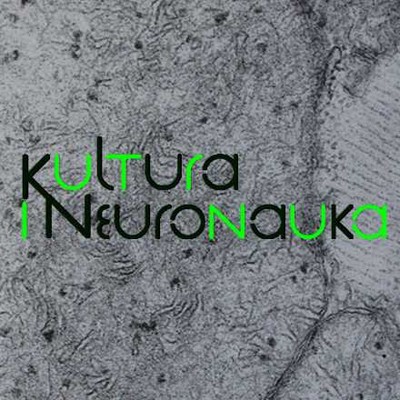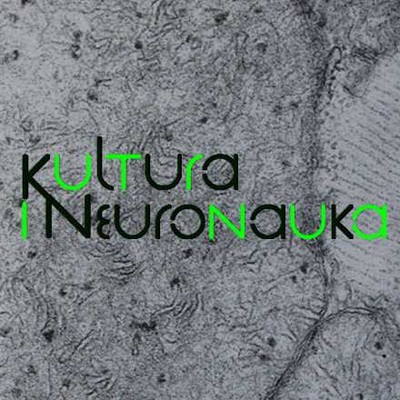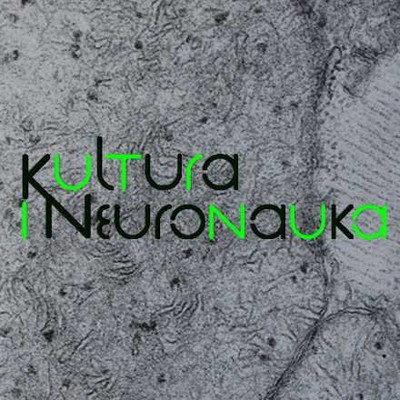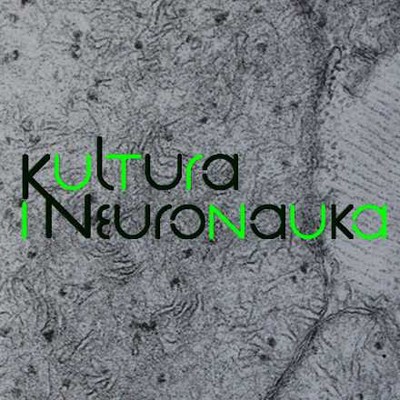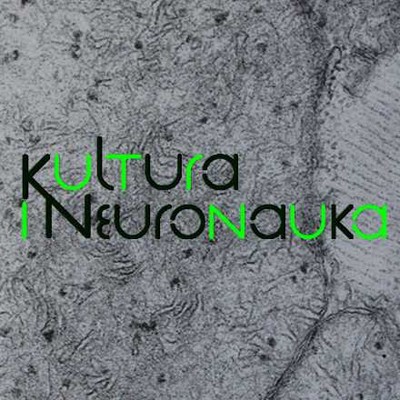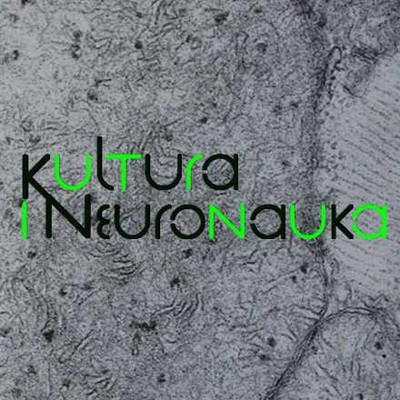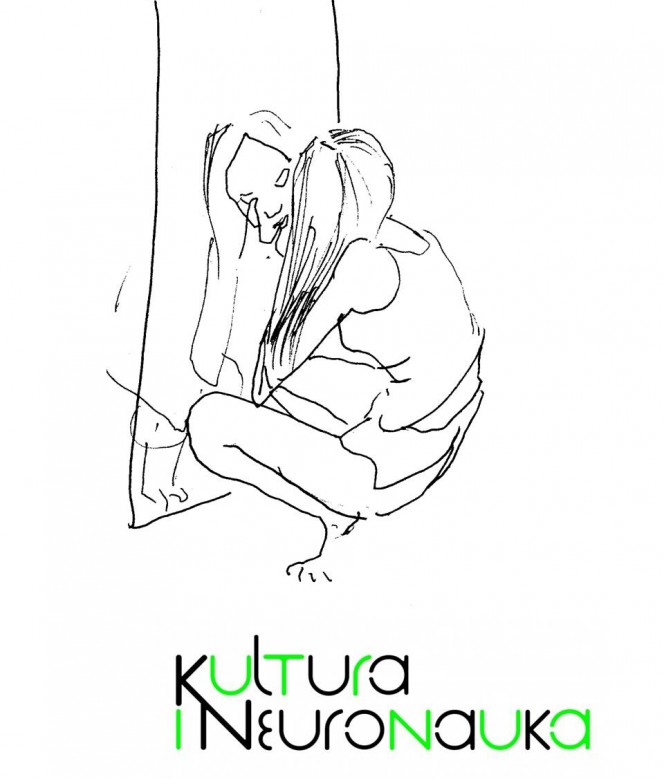
Culture and Neuroscience (C&N) is a social campaign for intellectual and mental development regardless of health or profession. Its purpose is to bring closer two seemingly distant worlds – those of neuroscience and culture – to work together for neurological patients and their carers, who should be equal partners in both discussion and therapy.
How can we help? What we want to offer is knowledge, conveyed in the form of dialogue. Many of us would like to understand the nuances of the disease, get to know the Świat Mózgu [World of Brain] periodical, the Beautiful Brain project or the Spinomino board game, or to learn more about technological therapy aids. A meeting of artists, scientists and propagators of knowledge of the brain should reveal mutual inspirations and pique the audience’s curiosity, offering a possibility of development.
Culture and Neuroscience is also a presentation of the artistic work of neurological patients. The first edition, in 2014, was devoted to aphasia and, naturally, I became its protagonist. This year we are talking about multiple sclerosis and I’ve invited the participation of Iveta Pilařova, a Czech artist suffering from MS since she was 18. Her works get to the bottom of the disease, of the rationale of making art inspired by MS.
It is crucial for the conference to initiate a wide-ranging social dialogue with the representatives of culture and science, with both able and disabled persons. For this purpose, there will be two speaking platforms on stage, and during the 20-minute lectures audience members will be able to talk to the speakers.
Importantly, the 2016 conference is partnered with The NeuroPositive Foundation, The Polish Multiple Sclerosis Society, and the Citizens of Science.
It is my hope that this year’s edition will be as successful as last year’s one and will help us to understand that in order to help effectively, one needs to know how.
Karolina Wiktor
C&N originator and curator
-
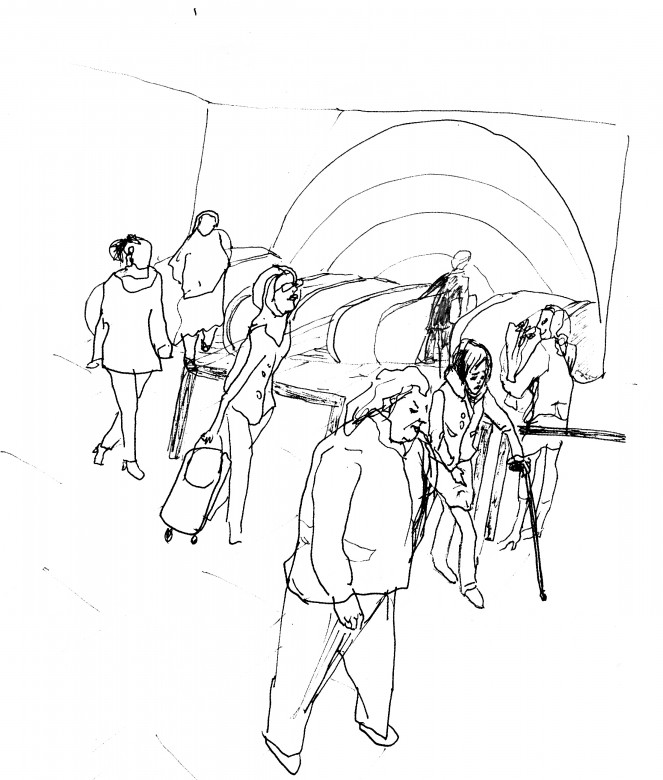 20.10 – 23.10.2016Iveta PilařováShow within Culture and Neuroscience conference
20.10 – 23.10.2016Iveta PilařováShow within Culture and Neuroscience conferenceOne of the assumptions of Culture and Neuroscience conference is to present the works of a neurologically disabled person. The first edition, in 2014, was devoted to aphasis and quite naturally its featuredartist became the originator and curator of the project — Karolina Wiktor. This year the main theme is multiple sclerosis, therefore Karolina invited Iveta Pilařová — a Czech artist struggeling with this disease since her 18th birthday.
Zachęta – National Gallery of ArtZachęta
21 October (Friday)
bottom-level exhibition rooms
free admission
conference translated into English
Understanding Incomplete Ability – Art vs. MS Neurological Disability
3 p.m.
conference opening: Hanna Wróblewska, Director, Zachęta – National Gallery of Art
Opening Dialogue. Looking, Understanding, Empathising
- Andrzej Potemkowski, PhD Hab., MD
Art and Multiple Sclerosis - Piotr Schollenberger, PhD
On Difference in Beauty. How Thought Becomes Art
4.15 p.m.
Dialogue. Between Attention and the Awareness of Art
- Iveta Pilařová PhD
My Body and Psyche - Alina Borkowska, PhD Hab., MD
Cognitive Dysfunctions and Depression in MS: Neurobiological and Therapeutic Aspects
5.30 p.m.
Dialogue. Popularising Knowledge of the Brain
- Noah Hutton
The Case against Neural Normality - Izabela Czarnecka-Walicka
In the ‘World of Brain’. On the Art of Asking Questions
7.30 p.m.
film screening: When I Walk, 2013, dir. Jason DaSilva, 144 min.
(free admission, multimedia room)
22 October (Saturday)
Cognitive-Technological Aspects Making Life Easier for Persons with MS
11 a.m.
opening of the 2nd day of the conference
film screening: Kładko Family, 2013, dir. Carlos Spottorno, 7 min.
- Heleny Kładko
12 a.m.
Dialogue. Is It Possible to Repair Cognitive Functions?
- Aneta Szymaszek, PhD
New Possibilities in Neural Rehabilitation: ‘Dr Neuronowski’ Therapeutic Programme - Konrad Kordas
Designing in a World of Disability. The Spinomino Board Game
1 p.m.
Dialogue. The Disabled Body in Movement
Dance 2XS & Karlin Musical Theatre performance documentation; music: Joy Division, She’s Lost Control, 5 min.
- Tomasz Komendziński, PhD
Movement, Body, Mind, Brain: From the Neuroscience of Health to Modern Neurorehabilitation - Tomasz Ciesielski
Dance in Rehabilitation: From Experience to Neuroscience
intermission
4 p.m.
Dialogue. The Disabled Body in an Era of Transhumanism
- Kazimierz Frączkowski, PhD Eng.
Telemedicine: Using Intelligent Mobile Movement Sensors and Interactive Computer Games in Telecare and Rehabilitation - Michał Klichowski, PhD
The Brain Entrapped: Transhumanistic Projects from the Perspective of Cognitive Neuroscience
5 p.m.
Dialogue. Working Together for Ourselves
- Urszula Pielach-Gemzała, Nowolipie Group
- Małgorzata Tomaszewska
Natural Reaction or Symptom?
6 p.m.
Dialogue. On Artistic and Cultural Barriers in Society. The Patient – Authority/Law Relationship
- Rafał Szymczak
Thirteen Reasons Why a Neurological Patient Must Become an Artist - Bartłomiej Lis, PhD
The Super-Museum: What Is It? A Short Story about the Acceptance of Deficit, Sensuality, and (Dis)ability
23 October (Sunday)
multimedia room
free admission
registration:
WORKSHOP PROGRAMME
11 a.m.
Michał Niewęgłowski
‘Quiet Mind’ – Relax and Know Thyself. Applications of Meditation in Everyday Situations
duration: approx. 1 hour
adult workshop
Note: for better results, we suggest abstaining from food for at least 2 hours prior to the workshop.
2 p.m.
Nowolipie Group
adult workshop

PhD Hab., MD, is a neuropsychologist, Head of the Department and Unit of Clinical Neuropsychology and Associate Dean for Science of the Faculty of Health Sciences, Medical College, Mikołaj Kopernik University in Toruń. Her areas of study include the neurobiology of cognitive functions, the molecular genetics of cognitive functions and markers related to mental illness predisposition, and the neuropsychology and neurobiology of decision-making processes. She collaborates with international academic centres, e.g. the University of California or the Cognitive Neuroscience Laboratory at Harvard. Author of over 400 academic papers, international expert on neuropsychology, speaker at domestic and international conferences, reviewer of academic projects and publications for leading international periodicals.

is a performer, dancer, theatre researcher and manager, combining those experiences in his practice. Member of the CHOREA Theatre Association since 2009, he has participated in such projects as Antiquity – Dance in Re-Construction, Peacocks, Badgers and Other Billy Goats or Oratorium Dance Project. In 2011, he began collaboration with the Danish group Granhøj Dans, realising the performances Men & Mahler and Rite of Spring Extended, directed by Palle Granhøj. The shows won the Årets Reumert prize for dance theatre in Denmark in 2013 and 2014, respectively. Author of performances such as Meaning-Action, presented in Poland and the United States. Author of Poland’s first monographic study, Taneczny umysł. Teatr ruchu i tańca w perspektywie neurokognitywistycznej [The dancing mind. Dance and movement theatre in the neurocognitive perspective]. He has participated in international (Poland, France, UK) projects on the application of the cognitive sciences and neurosciences in the field of dance research.

is a journalist and leader of patient organisations. She has been managing NGOs since 2001. She spent 12 years as President of the Polish Multiple Sclerosis Society, for which she won the Wolfensohn award for a persons with MS who has contributed to the worldwide fight against MS. Recipient of the Gold Cross of Merit for work on behalf persons with brain disorders. In 2012 she founded the NeuroPozytywni Foundation, an organisation that supports people with brain diseases; the Foundation is partnered with the European Federation of Neurological Associations and the European Brain Council. Initiator and Deputy President of the Polish Brain Council, an umbrella organisation for NGOs working with people with brain diseases, developing a strategy for such patients. Chief editor of two periodicals published by the Foundation: the NeuroPozytywni quarterly, aimed at MS patients and their families, and the Świat Mózgu magazine, which popularises neurobiology and knowledge of brain diseases. She represents patients’ interests in the HTA process and is an expert of the Agency for Health Technology Assessment and Tariff System (AOTMiT) on the patient side. She also represents patient organisations in the Health Ministry’s National Ethical Committee for Experiments on Animals. An MS patient since 1997, wheelchair-bound since 2001, she continues to live a full and active life.

PhD, Eng., Director of Postgraduate Project Management Studies, Assistant Professor at the Faculty of IT and Management, Wrocław University of Technology. His main areas of professional experience and academic research include project management, telemedicine, e-health, m-health, and IT in healthcare. Initiator of the Postgraduate Project Management Studies program, he has participated in research projects in the fields of bio-engineering, electrophysiological techniques for clinical diagnosis, and medical IT. With many years’ experience as Project Manager at one of Poland’s largest IT companies, in 2009–2013 he was also the National Coordinator of Regional IT Projects in Healthcare with a P1 and P2 Health Ministry central project. Author of over 140 papers, published in Poland and abroad in periodicals and conference materials, on biosystems, software engineering, and project management. Author of a book on IT project management. Author of patents and innovations. Member of the Lower Silesian Group of the Project Management Polska Association and of the Wrocław Branch of the Polish Information Processing Society. PIPS expert, winner of a first prize and honorary mention in the ‘Project Master’ category.

is a film director and curator. He curated Subjective Resonance Imaging at the 2013 Human Brain Mapping Conference, was a featured speaker at the 2013 Association of Neuroaesthetics Symposium at the Venice Biennale, curated the 2014 Impakt Festival in Utrecht, and was named a 2015 Salzburg Global Fellow in Neuroscience and Art. As an undergraduate, Hutton studied art history and neuroscience and later went on to found The Beautiful Brain, an online magazine exploring this interdisciplinary exchange. He spends part of each year filming at the Human Brain Project and other prominent neuroscience labs around the world as part of Bluebrain, his 15-year film-in-the-making that has been featured in Scientific American and VICE which will chronicle neuroscientist Henry Markram’s audacious attempt to build a simulation of the human brain on supercomputers.

PhD, is a pedagogue, Assistant Professor at the Adam Mickiewicz University in Poznań. He has published, in Polish and English, over 50 academic papers on relationships between technological change and man’s cognitive, emotional and social functioning. Author of three books and co-editor of five multi-author publications. Participant in over 20 domestic and international research grants, he represented Poland on two international projects of the European Cooperation in Science and Technology Association. Secretary of the Journal of Gender and Power, editor for ‘new technologies in education’ of Studia Edukacyjne, reviewer of ETHOS. Kwartalnik Instytutu Jana Pawła II KUL and Educational Research and Reviews. Since 2015, he has been reviewing grant applications for European Cooperation in Science and Technology Association. He has expanded his academic experience during numerous residencies, e.g. at the University of Malta, the Lusófona University of Humanities and Technologies (Portugal), the University of the West of England, the European Cooperation in Science and Technology Association in Brussels, the Polish School in Reykjavik, the European Commission (Belgium), the University of Cambridge, the Autonomous University of Barcelona, the Sapienza Università di Roma or the European University Viadrina (Germany). Recipient of numerous awards, including a Minister of Science and Higher Education grant for outstanding young scientists.

PhD, is a philosopher and cognitive scientist working at the Mikołaj Kopernik University (Department of Cognitive Science and Epistemology and the Neurocognitive Laboratory at the Interdisciplinary Centre of Advanced Technologies, where he coordinates Consciousness Disorders and Neurorehabilitation). Director of Postgraduate Studies in Interdisciplinary Neurorehabilitation, coordinator of the International Interdisciplinary Research for Disorders of Consciousness (InterDoCTor), an international group based in Toruń. Organiser of the Cognitivist Autumn in Toruń conference series, editor of the periodical Theoria et Historia Scientiarum. His research interests include interdisciplinary research and its rudiments, particularly in cognitive science, communication as sharing – sensomotorics, intersubjectivity and interaction, consciousness disorders from neurobiology, through clinical, to neurophenomenology, as well as advanced neurorehabilitation, embodied cognitive sciences, information visualisation, and the interface of science and art. Author of over 100 publications, patent co-author, manager of numerous grant projects.

is an industrial designer, fan of natural materials, juggler and amateur musician. He studied at the Faculty of Industrial Forms, Academy of Fine Arts in Kraków, for most of the time under Prof. Czesława Frejlich in the Department of Ergonomic Design. She supervised his master’s thesis, Supporting Persons with Aphasia, which he successfully defended in 2016. The thesis was inspired by the 2014 Culture and Neuroscience Conference, which marked the beginning of his design collaboration with Karolina Wiktor. Work on the graduation project led him to design the Spinomino board game, meant for aphasia patients, but with wider potential applications. In June 2016, Spinomino was featured in the exhibition of the best graduation projects at the Academy of Fine Arts in Kraków in the academic year 2015/2016.


PhD, is a cultural manager, sociologist and social activist. He studied Gender Studies at Warsaw University and Oslo University. Since 2012 he has been curating social projects (debates, lectures, workshops, cultural animation, research projects, audience development) at the Wrocław Contemporary Museum, where his responsibilities include audience development and program availability for persons with sensory disabilities. Since 2012 he has been a ‘Flying Sociologist” for the Towarzystwo Inicjatyw Twórczych „ę” (diagnosing local community needs, organising workshops, moderating an idea generator, a dozen or so activation/training interventions around the country). Since 2013 he has been teaching socio-cultural activation methods and techniques at the SKiBA school of cultural managers in Wrocław. Member of the Art Transparent Foundation of Contemporary Art (curator of debates and community projects at the 7th SURVIVAL Art Festival. He collaborates with the Impact Foundation (audience development in the culture sector). Co-host of the weekly show BMI at Radio Akademickie LUZ.

has been teaching development workshops for nearly 14 years now to all kinds of audiences, from businesspeople, through open-access workshops, to prisons and correctional facilities for habitual juvenile offenders, in countries such as Poland, Germany, Portugal or Estonia. Graduate of Public Health at the University of Social Sciences and Humanities in Warsaw. Initiator and organiser of the Kazimiernikejszyn Festival. Creator of Intů, Poland’s first guided-meditation app. Host of Audycja bez spinki at Radio Kampus. He prefers a mix of humour and matter-of-factness. Father of two daughters.

is an architect with a degree in Architecture and Urban Planning from the Warsaw University of Technology. Founded in 2008, her firm, Format-Studio, offers interior design and spatial planning services. Member of the Nowolipie Group since 2013. She has participated in the following events: Winter Holiday Camp (CCA Ujazdowski Castle, Warsaw, 2014); Kongres rysowników w Ursusie. Pamiętnik mówiony (Warsaw, 2014); Il congresso dei disegnatori (Turin, 2015); LOOP è un’opera d’arte (Rome, 2016); Uskrzydleni. Paweł Althamer i Grupa Nowolipie (Sopot, 2016). Working with the Sławek Foundation, she ran art workshops for persons from groups at risk of social exclusion – prisoners and welfare-home residents – during the 5th and 6th editions of the Mienia Art festival of prison art (Mienia, 2015, 2016).

PhD is a Czech sculptor, painter, author of films and installations, based in Vrchlabi. Graduate of the Academy of Art, Architecture and Design in Prague (2012), with masters in Ceramics and Porcelain and Alternative Media, she earned a PhD there in Intermedia in 2009. Artist-in-residence in Kobe, Japan, and the Glasgow School of Art. Her work was recently featured in the exhibition All Hail Sport! at the DOX Centre for Contemporary Art in Prague (through 10 October 2016). The main theme of her work is highly personal: living with multiple sclerosis, grappling with your own body, with the limitations caused by the disease, but with references to childhood and adolescence. Her works are moving and witty at the same time.

PhD Hab., MD, is a graduate of the Pomeranian Medical Academy. In 1978–1999 he was an Assistant, then Assistant Professor at the Neurology Clinic there. Founder of one of Poland’s first multiple-sclerosis diagnosis and treatment centres in 1981. MS was the subject of his postdoctoral thesis (2002) and of numerous other publications. Editor of the book Psychologiczne aspekty stwardnienia rozsianego [Psychological aspects of multiple sclerosis] (2010), member of the Advisory Committee of the Polish Multiple Sclerosis Society. His other areas of interest include dementia and neuroaesthetics. Associate Professor at Szczecin University since 2008, Director of the Department of Clinical Psychology and Mental Hygiene at the Institute of Psychology there. Board Member of the Polish Neurological Society since 2005. President of the ‘Cogito’ Association for Knowledge of Alzheimer’s Disease. Member of editorial boards of Polish neurological periodicals. Organiser of numerous conferences, the Szczecin Alzheimer’s Days, and the Szczecin Brain Day. Voted Doctor of the Year in a plebiscite in Szczecin in 2013. A keen traveller, he is also an exhibiting amateur painter and photographer. He has two children (his daughter is a paediatrician, his son an architect) and two grandchildren.

PhD, is an Assistant Professor in the Department of Aesthetics, Institute of Philosophy, Warsaw University. His research interests include phenomenology and the tradition of phenomenological aesthetics as well as art theory. He has published in periodicals such as Sztuka i Filozofia, Konteksty, Przegląd Filozoficzny or Art Inquiry. Recherches sur les arts. Author of the book Granice poznania doświadczenia estetycznego [The cognitive limits of aesthetic experience] (2014), co-editor, with Iwona Lorenc and Mateusz Salwa, of the book Fenomen i przedstawienie. Francuska estetyka fenomenologiczna. Założenia / zastosowania / konteksty [Phenomenon and representation. French phenomenological aesthetics. Propositions / applications / contexts] (2012). Co-translator, with Monika Murawska, of Jean-François Lyotard’s Que peindre? Adami, Arakawa, Buren (published in 2015 as Co malować? Adami, Arakawa, Buren).

PhD, is an Assistant Professor in the Studio of Neuropsychology of the Marceli Nencki Institute of Experimental Biology, Polish Academy of Sciences, where in 2008 she defended, with honours, a doctoral thesis on new treatments of aphasia. She also works as Assistant Professor in the Department of Neurorehabilitation, University of Social Sciences and Humanities in Warsaw. Recipient of a Foundation for Polish Science fellowship for young academics. She did a postdoctoral internship at the Institute of Medical Psychology, University of Magdeburg, where she did research on neurorehabilitation using electric brain stimulation. Her research interests include neuropsychology, neurorehabilitation and cerebral neuroplasticity.

specialises in social communication. A Board Member and Partner at Profile Agency, he was twice the President of the Polish Public Relations Consultancies Association. Lecturer and trainer (London School of Public Relations, Warsaw University’s Institute of Journalism). Founder and President of the ARGUS Active Patients Foundation. Member of the Jury, Social Campaign of the Year competition. Co-founder of the Citizens of Science civic movement. Married, father of two daughters.

is a specialist in psychiatry, graduate of the Warsaw Medical University, for more than 10 years now working as a doctor. She has gained her professional experience at Warsaw academic centres, multi-profile hospitals and psychiatric hospitals. She specialises in diagnosing and treating patients with somatic issues, mentally ill persons, those suffering from emotional problems as well as drug, alcohol and psychoactive-substance users. As consultant of the Hospital of Infectious Diseases, she has worked with terminally ill persons and HIV-positive patients. She collaborates with the NeuroPozytywni Foundation. She believes every person is like an unexplored planet: interesting, mysterious and full of complexities. She appreciates sense of humour and fine food and loves to read and travel, spending most of her free time with her family.

is a group of MS patients who practice ceramics as a therapy of the body and soul. Courtesy of the Państwowe Ognisko Artystyczne art centre at Nowolipie Street in Warsaw, they meet once a week to work with clay. Ever since leadership of the group was taken by artist Paweł Althamer, their work has evolved firmly towards sculpture. The artist has made them aware that what they do is art and can be shown to others. They have exhibited their work at the 1st Moscow Biennale of Contemporary Art (2005), the Kunsthalle Fredericianum in Kassel (Collective Creativity, 2005), the Art Basel art fair (2008), The City Hall Park (New York, 2010), the Warsaw Sculpture Park (2010), or the Nasher Sculpture Center (Dallas, 2011).

(NeuroPozytywni Foundation) was founded in 2012 by Izabela Czarnecka-Walicka. Holding the status of a public benefit organisation since 2014, its mission is to improve the quality of life of persons with brain diseases. Areas of activity include education, lobbying, publishing, organisation of awareness-raising campaigns (e.g. MS – Fight for Yourself, PS. I Have MS), conferences and parliamentary debates, collaboration with other NGOs. The Foundation publishes the periodicals NeuroPozytywni, for persons with multiple sclerosis (MS) and their families, and Świat Mózgu, which raises social awareness of brain diseases and popularises healthy lifestyles and preventive treatments. It also runs an online radio channel. In 2013, the Foundation established the Polish Brain Council, which brings together neurologists, psychiatrists, neurosurgeons, patient organisations, pharmaceutical companies and equipment manufacturers. The Foundation has received numerous awards for its work. It collaborates with the Multiple Sclerosis International Federation (MSIF) and is a supporting partner of the European Federation of Neurological Associations (EFNA).

(The Polish Multiple Sclerosis Society) is the sole organisation in Poland bringing together persons with multiple sclerosis, their relatives and friends. Founded in 1990, awarded public-benefit status in May 2004. The Society has some 6,000 members in 23 branches throughout Poland. It works together with local organisations devoted to helping disabled persons and with international MS associations. Representing MS patients on the international forum, it is a member of the European Multiple Sclerosis Platform (EMSP) and the Multiple Sclerosis International Federation (MSIF). The Society’s mission is to improve the quality of life of persons with MS and to facilitate their access to therapy and rehabilitation, so that they can function as full-fledged members of society and live a dignified life. It also works to raise public awareness of MS and lobbies the government for easier and non-discriminatory access to medicines and rehabilitation. The Society is largely run by volunteers, mostly MS patients themselves, their relatives and friends; only several of the largest branches and the Central Council office employ paid staff.

(conference curator) is a visual artist, author and animator of meetings devoted to the interface of Culture and Neuroscience. Founder, with Aleksandra Kubiak, of the performance duo Grupa Sędzia Główny (2001–2013); the duo’s works are held in the collections of institutions such as the National Museum in Warsaw, Muzeum Sztuki in Łódź or the Zachęta National Gallery of Art. In August 2009, following an aneurism rupture and two strokes, her career took a completely new direction and she now practices various forms of visual poetry. Since 2014, initiator and organiser of the Culture and Neuroscience educational-cultural conferences and workshops at the Zachęta. Recent exhibitions featuring her work include We Are Here (BWA Zielona Góra, 2015), La déchirure (Atlas Sztuki, Łódź, 2016) or New Illustrations (Galeria Arsenał, Białystok, 2016). She taught workshops, with Marcin Wichrowski, at the Think (in) Visual Communications international conference in 2014, and guest lectures for logopedics students at Warsaw University in 2015–2016. Author of the blogs afazja.blogspot.com and poezjawizualna.blogspot.com. She has described her experiences in the poetic autobiography Wołgą przez Afazję (2014).

(conference moderator) PhD Hab., is a graduate of Warsaw University, currently working as Assistant Professor in the Polish Academy of Sciences’ Institute of Biochemistry and Biophysics. Author of nearly 40 academic papers, populariser of science, co-founder of the Citizens of Science civic movement. Full of admiration for discoveries of the mysteries of the brain.

